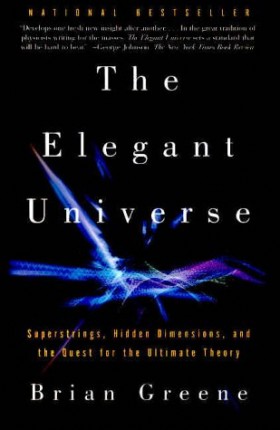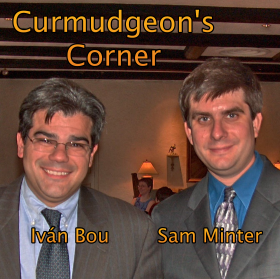 Author: Brian Greene
Author: Brian Greene
Original Publication: 1999 Feb
Started: 2010 Oct 9
Finished : 2010 Oct 16
Format: Kindle
7369 locations / 8 days
921 locations / day
So, here we go. This was my first Kindle book. Woo! It was also the first picked by my new method. Double Woo!
First of all, I’ll get the Kindle stuff out of the way. I love reading on the Kindle. I love the convenience. I love being able to switch back and forth between the Kindle device and my iPhone at will, and I do so regularly. All in all it is a great experience for this kind of reading. I want all my reading to be this kind of reading in the future.
So now, rate… there are no pages, just “locations”, so there is no direct comparison to the “pages per day” I used to mention. Now, I could find out how many pages the paper book had and do the math to convert, but locations is the measure here, so that is what I will use above. In reality though, what this means is that looking at location rates and page rates trying to compare them between Kindle books and Paper books just isn’t that meaningful, so in general I’m switching to just looking at my book rate. In this case, one book in 8 days. Of course, this is also dependant on the length and type of the books, but whatever.
Oh, the book itself… this is of course a popularly focused book on String Theory. Although I was a physics major, I never got to study string theory in college. I did some Cosmology. I did some Quantum. I can’t remember if I did GR. In any case, this was going to cover an area where I’d read a bit in popular accounts before that included some string theory stuff, but never anything focused specifically on it. At least not that I can remember.
So, almost exactly the first 30% of the book was review of Special and General Relativity and the Standard Model of Particle Physics. This is all well and good, but this part I was very familiar with. So it was a bit of a slog. It seemed like the same examples and thought experiments and analogies and descriptions of experiments that I’d heard about and read about and in some cases studied academically since at least my teenage years. Can someone some time come up with a new way of explaining special and general relativity that doesn’t follow the exact same path everybody else has followed since Albert came up with them? That would be nice. Of course, for someone who was NOT already familiar with these bits, this part of the book would no doubt be most welcome.
After that first 30% though, we started getting into less familiar territory for me. I still ended up with the same frustration I often feel with popular physics books though… too many analogies and not enough of the actual math. Now, don’t get me wrong. I don’t want an actual full fledged graduate school textbook or anything. At times I’ve picked up such textbooks on General Relativity or the like, and I know that’s not I want right now either. I want something in between. Something that does not require a graduate degree in Physics or Math to understand, but yet is not afraid to assume the reader has a basic understanding of, say, Calculus level math, with perhaps a touch of number theory or some such. Of course, the audience for such a book would probably be pretty limited, which is why you either see the general interest book with almost no mathematics, or you see actual textbooks, with years of prerequisites study needed to really “get” it, and most likely even then, it would be the kind of thing that would massively benefit from in person classes to go along with it. So I guess I’ll not get that kind of thing any time soon.
So anyway, non-methematical as it was, the last two thirds of the book did get into aspects of String Theory that if I ever knew, I didn’t really remember beyond the very high level notion of there being multi-dimentional vibrating strings. And there is some exciting stuff there. The biggest sense one was left with though was of a field that was a work in progress. One where a lot of potential was visible, but not yet realized. A lot more questions than answers. The tone was one of eager optimism that over the next few years a lot more would become clear. Of course, this was published in 1999. More than a decade has gone by. My general impression from passing references on blogs and the like (rather than any in depth study of course) is that we may still be in the same sort of spot today. Where we still have a situation where String Theory isn’t yet in a position to make concrete predictions that can actually be tested with current (or near future) technology, and where there are still lots of variations on the core theory, without a good way of choosing between them. Like I said though, I could be wrong, and welcome clarification from someone who knows better.
Or maybe recommendations for a more recent book on the subject that will fill in the last 11 years of progress in the field.
One thing I’d particularly like to read more about is the Holographic Principle. That sounds like great fun. So does Entropic Gravity. If anybody has some book recommendations that cover those topics, send them my way! :-)
![]() 1-Click Subscribe in iTunes
1-Click Subscribe in iTunes![]() View Podcast in iTunes
View Podcast in iTunes![]() View Raw Podcast Feed
View Raw Podcast Feed![]() Download MP3 File
Download MP3 File![]() Follow the podcast on Facebook
Follow the podcast on Facebook
